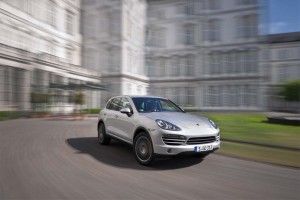Sales of vehicles that run on something other than gasoline climbed significantly during the first quarter of 2012, with an especially big surge in demand for hybrids and high-mileage diesel products. The increase mirrors the rapid run-up in the price of gasoline – and has been buoyed by the increased availability of new diesel, battery and other vehicles able to use alternative energy sources.
The Toyota Prius, the world’s best-selling gas-electric model, set an all-time U.S. sales record in March. And during the first quarter, American hybrid car sales overall increased 37.2%. The emerging plug-in electric car market saw a sales increase of 323% after a slow and shaky start in 2012. By comparison, the overall automobile market increased 13.4% in 2012, according to new sales information compiled by HybridCars.Com and Baum and Associates.
“With higher fuel prices, Americans are seeking more fuel efficient cars so it’s understandable that diesel and hybrid cars are showing such impressive sales increases,” said Allen Schaeffer, the Executive Director of the Diesel Technology Forum.
In addition, the new federal fuel efficiency standards that will require a 54.5 mpg average by 2025 will also boost both hybrid and clean diesel auto sales, as diesel cars are 20% to 40% more fuel efficient than gasoline versions, Schaeffer said.
Manufacturers plan to introduce an even wider range of new hybrids in 2012, as the technology largely goes mainstream. But there will be an even bigger bump – from a percentage basis, at least – in more advanced battery-powered models, ranging from the Ford C-Max Energi plug-in to Toyota’s battery-electric RAV4-EV.
Clean diesel automobile sales in the United States also increased an impressive 35% during the first quarter of 2012 continuing the strong gains in diesel car purchases in 2011. The U.S. sales of clean diesel autos increased 39.6% in March 2012 over March 2011, 42.9% in February, and 21.2% in January. Demand for diesels rose 27% during 2011.
The return of the diesel has largely been driven by the significant boost in mileage the fuel offers, but “American drivers are also recognizing the environmental benefits of the new clean diesel technology,” Schaeffer said.
While diesels now account for roughly half of all European passenger car sales, they have been slow to catch on in the U.S., experts suggest, because of consumer memories of the slow, foul-smelling technology offered in the 1970s and ‘80s. But as more modern – meaning cleaner, quicker, more fun-to-drive – diesel technology appears on the market, consumer resistance is slowly being overcome.
Earlier this month, the Mercedes-Benz S 250 CDI BlueEFFICIENCY clean diesel received the prestigious ‘2012 World Green Car’ award during the New York International Auto Show. This followed the January announcement that the Volkswagen Passat TDI clean diesel had been selected the ‘2012 Earth, Wind & Power Car of the Year” for “Most Earth Friendly” automobile.
Schaeffer expects sales of diesel-powered vehicles to increase further as several new products are introduced in the U.S. market over the next year.
The 2012 Porsche Cayenne clean diesel made its debut at the NY Auto Show, while Audi has announced that it will be selling an Audi A6, A8 and Q5 TDI diesel in the U.S. in 2013. The A4 may still see a diesel version in 2014 or even as early as 2013.
Chrysler also has announced that it will be introducing a Jeep Grand Cherokee diesel in 2013 or 2014, and possibly other Jeep diesels later. Ford will offer diesel and gasoline engines in the new Transit full-size commercial van that goes on sale in the U.S. next year.
General Motors has announced a diesel version of the Chevrolet Cruze will begin sales in the U.S. in 2013.
Mazda will become the first Asian car manufacturer to sell diesel cars in the U.S. when it introduces its SKYACTIV-D 2.2-liter clean diesel engine here next year.
Earlier this month, the Mercedes-Benz S250 CDI Blue Efficiency diesel was named World Green Car of the Year. That marks a significant shift in the industry, suggested the maker’s Christopher Horn, who added that the idea “of a 4-cylinder engine in a Mercedes S-Class was something unheard of a few years ago.” While there are no plans to bring the S250 to the States, Mercedes has been adding a range of clean diesels to the American line-up.
German makers have seen the strongest growth in demand for diesel, most models generating at least 15% of demand where the technology is available. But some, like the Volkswagen Jetta, have pushed upwards of 30%, with sales actually limited by the availability of U.S.-spec powertrains.
Paul A. Eisenstein contributed to this report.

